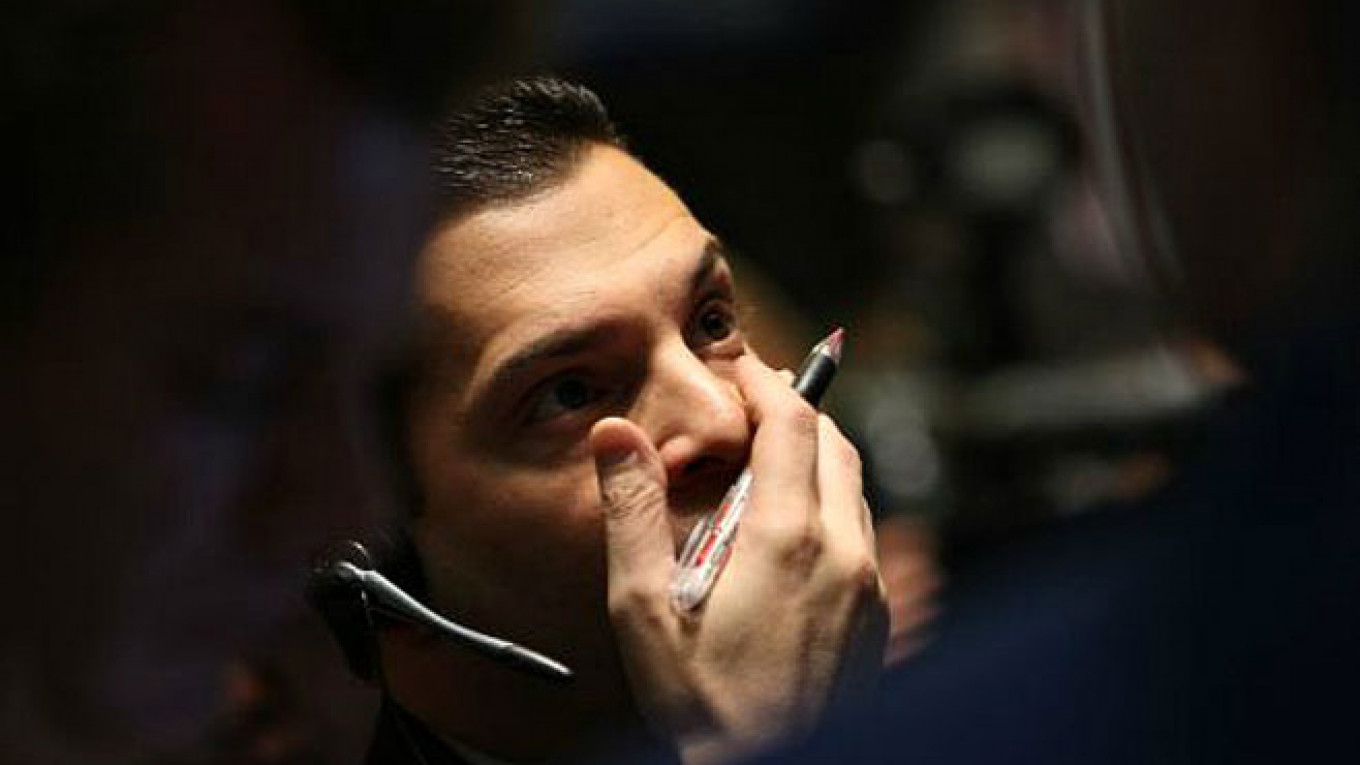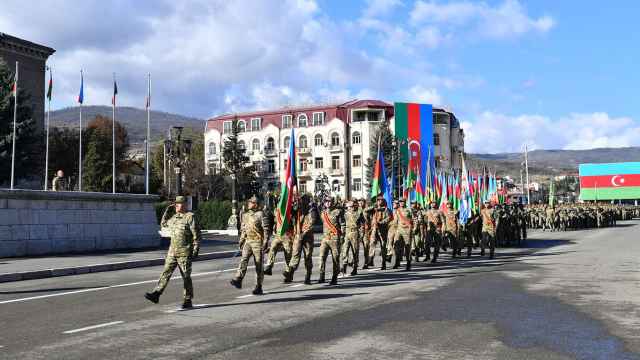One reason why Russians support their country's invasion of Crimea is because Russia looks strong again. The Russian military appears well-equipped, disciplined and efficient. Gone are the undersized Soviet-era recruits, the cartoon Rambos of the Chechen campaigns and the officers in banana republic-style oversize hats of the 1990s. These guys look like real soldiers — like U.S. GIs.
This picture of strength obscures the fact that the Ukrainian misadventure stems not from strength but from weakness. The need to use force comes from Russia's failure to interest Ukraine in a voluntary alliance. Russia's economic and political system is so utterly unattractive that Ukraine, like former Soviet satellites in Eastern Europe and other former Soviet republics, wants to have nothing to do with it. This is the reason so much of Ukraine has opted to join the West.
For 20 years, Ukraine had a system that was very similar to Russia's — until its latest kleptocrat, the utterly shameless and supremely greedy former President Viktor Yanukovych, finally ran it into the ground. The choice to adopt a more open, competitive, rules-based Western-style system is natural for a democratic Ukraine. Putinism can only work in a country that, like Russia, earns $350 billion annually by exporting its oil and gas.
But even Russia's phenomenal natural wealth can't support indefinitely an economic system that produces little and instead efficiently breeds parasites. Even with high oil prices and output, the Russian economy is sputtering. Capital and brains are fleeing the country, investment is shrinking, and inflation is on the rise. The Central Bank has already been forced to devalue the currency to make petrodollars go farther in ruble terms.
It is the beginning of the end for the Russian economic boom. The natural gas market is shrinking, and prices are under pressure thanks to new fracking and gas liquification technologies. While Russia goes on pumping oil, the rest of the world is developing renewable sources of energy and energy-saving technologies. Oil from shale has boosted U.S. oil output to its highest level in 25 years, whereas Brazil is planning to triple its deep-sea oil production in the next 15 years, to cite just two examples.
Instead of peak oil, when supply of "black gold" would start to diminish, analysts now talk of peak oil demand as proven reserves are revised upward. In the U.S., gasoline use per car peaked in 2004 and has now fallen to its lowest level since 1984. The administration of U.S. President Barack Obama wants automakers to double their average gas mileage by 2025 — to nearly 55 miles per gallon.
Oil prices are likely to fall in the next five years. Besides oil, gas, metals, weapons and chemicals, Russia sells very little to the rest of the world. This means an inevitable decline in export earnings and a diminishing role for Russia in the world economy.
This was going to happen anyway, but by invading Crimea — and refusing to acknowledge that those are Russian soldiers — the Kremlin has declared that it is no longer bound by international rules and that Russia refuses to act as a member of a community of nations. This means economic isolation, falling foreign investment and lower credit ratings.
And then there are imminent international sanctions. True, sanctions will disrupt oil markets in the near to medium terms, boost natural gas prices in Europe and penalize many U.S. and European companies. But in the end they will merely speed up the process of Russia's economic decline that was going to take place in any case.
Alexei Bayer, a native Muscovite, lives in New York. His detective novel "Murder at the Dacha" was published by Russian Life Books in 2013.
A Message from The Moscow Times:
Dear readers,
We are facing unprecedented challenges. Russia's Prosecutor General's Office has designated The Moscow Times as an "undesirable" organization, criminalizing our work and putting our staff at risk of prosecution. This follows our earlier unjust labeling as a "foreign agent."
These actions are direct attempts to silence independent journalism in Russia. The authorities claim our work "discredits the decisions of the Russian leadership." We see things differently: we strive to provide accurate, unbiased reporting on Russia.
We, the journalists of The Moscow Times, refuse to be silenced. But to continue our work, we need your help.
Your support, no matter how small, makes a world of difference. If you can, please support us monthly starting from just $2. It's quick to set up, and every contribution makes a significant impact.
By supporting The Moscow Times, you're defending open, independent journalism in the face of repression. Thank you for standing with us.
Remind me later.






